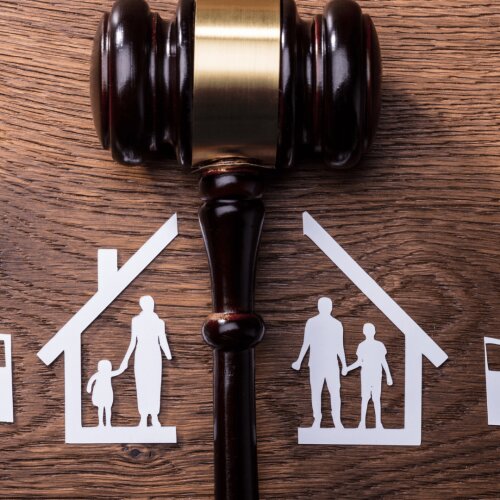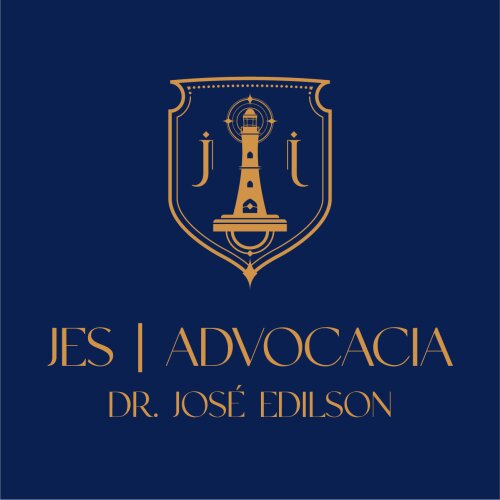Best Child Abuse Lawyers in Brazil
Share your needs with us, get contacted by law firms.
Free. Takes 2 min.
Free Guide to Hiring a Family Lawyer
Or refine your search by selecting a city:
List of the best lawyers in Brazil
About Child Abuse Law in Brazil
Child abuse in Brazil is a serious issue that is addressed by a combination of national legislation and international conventions to ensure the protection and welfare of children. The Brazilian government has established systems and frameworks to prevent and combat child abuse, such as the Estatuto da Criança e do Adolescente (ECA), which translates to the Child and Adolescent Statute. This statute outlines the rights of children and adolescents and provides measures for safeguarding these rights against abuse, exploitation, and violence. Brazil is also a signatory to the United Nations Convention on the Rights of the Child, reinforcing its commitment to protecting young individuals from harm.
Why You May Need a Lawyer
Individuals may require legal assistance in child abuse cases for various reasons:
- Reporting Abuse: Navigating the process of reporting suspected or known child abuse and understanding the legal implications can be complex.
- Parental Defense: In cases where a parent or guardian is accused of abuse, legal representation is crucial to ensure a fair legal process.
- Custody Battles: Child abuse accusations can affect custody arrangements, necessitating skilled legal advice.
- Victim Representation: Representing the interests of the child and ensuring their protection and future well-being through the legal system.
- Criminal Prosecution: For those involved in prosecuting offenders, legal expertise is needed to navigate the criminal justice system.
Local Laws Overview
The key aspects of local laws relevant to child abuse in Brazil include:
- Estatuto da Criança e do Adolescente (ECA): Establishes comprehensive protections for children and adolescents, including the right to be protected from abuse, neglect, and exploitation.
- Mandatory Reporting: Professionals such as teachers, healthcare workers, and social workers are required to report suspected abuse, and failure to do so can lead to penalties.
- Protective Measures: The law provides for protective measures such as protective custody and restraining orders against alleged abusers.
- Criminal Offenses: Child abuse is criminalized with severe penalties, including imprisonment.
- Family Law Implications: Abuse allegations can influence family law decisions like custody, visitation, and parental rights.
Frequently Asked Questions
What constitutes child abuse under Brazilian law?
Child abuse in Brazil includes physical, emotional, and sexual abuse, as well as neglect and exploitation. It encompasses any act or failure to act by a caregiver that causes harm, potential harm, or threat of harm to a child.
How do I report child abuse in Brazil?
To report child abuse, you can contact local authorities such as the police or social services. The national hotline, Disque 100, is also available for reporting anonymously.
What are the penalties for child abuse in Brazil?
Penalties for child abuse can range from fines to imprisonment, depending on the severity and nature of the abuse.
Can child abuse affect custody decisions in Brazil?
Yes, allegations or evidence of child abuse can significantly influence custody and visitation arrangements, often resulting in restricted or supervised visitation rights for the accused party.
What legal protections exist for child abuse victims?
Victims of child abuse are entitled to protective measures, including safe housing, psychological support, and legal assistance to ensure their safety and well-being.
Are there any specialized courts for child abuse cases in Brazil?
Yes, Brazil has juvenile courts specifically designed to handle cases involving children and adolescents, including those related to abuse.
What should I do if I am wrongfully accused of child abuse?
If you are wrongfully accused, it is essential to seek legal counsel immediately to ensure your rights are protected and to develop a strategy for clearing your name.
Can foreigners access legal protection against child abuse in Brazil?
Yes, Brazilian law protects all children on its soil, including foreign nationals, ensuring they receive the same legal protections against abuse.
Is financial support available for child abuse victims and their families?
Government and non-governmental organizations may offer financial and other forms of support to victims and their families, including counseling services.
How does Brazil's law address online child abuse?
Brazilian law encompasses measures to combat online child abuse, including stringent penalties for those involved in the creation, distribution, and possession of child pornography.
Additional Resources
For those seeking more information or assistance, the following resources may be helpful:
- Disque 100: A national hotline for reporting child abuse and receiving support.
- Conselhos Tutelares: Local child protection agencies that operate throughout Brazil.
- Ministry of Human Rights: Offers various programs and initiatives focused on child protection.
- Non-Governmental Organizations (NGOs): Such as Fundação Abrinq and Save the Children, offer resources and support relating to children's rights and protection.
Next Steps
If you need legal assistance in a child abuse case, consider taking these steps:
- Seek Legal Advice: Contact a lawyer specializing in family or criminal law who is experienced in dealing with child abuse cases.
- Document Everything: Gather and keep records of any relevant documentation, evidence, or communications related to the case.
- Communicate Clearly: Prepare for any meetings with legal professionals by having a clear account of events and any questions you may have.
- Stay Informed: Keep abreast of any updates in the case and understand the next stages in the legal process.
- Access Support Services: Utilize counseling and support services available for victims and families for emotional and psychological support.
Lawzana helps you find the best lawyers and law firms in Brazil through a curated and pre-screened list of qualified legal professionals. Our platform offers rankings and detailed profiles of attorneys and law firms, allowing you to compare based on practice areas, including Child Abuse, experience, and client feedback.
Each profile includes a description of the firm's areas of practice, client reviews, team members and partners, year of establishment, spoken languages, office locations, contact information, social media presence, and any published articles or resources. Most firms on our platform speak English and are experienced in both local and international legal matters.
Get a quote from top-rated law firms in Brazil — quickly, securely, and without unnecessary hassle.
Disclaimer:
The information provided on this page is for general informational purposes only and does not constitute legal advice. While we strive to ensure the accuracy and relevance of the content, legal information may change over time, and interpretations of the law can vary. You should always consult with a qualified legal professional for advice specific to your situation.
We disclaim all liability for actions taken or not taken based on the content of this page. If you believe any information is incorrect or outdated, please contact us, and we will review and update it where appropriate.
Browse child abuse law firms by city in Brazil
Refine your search by selecting a city.
















